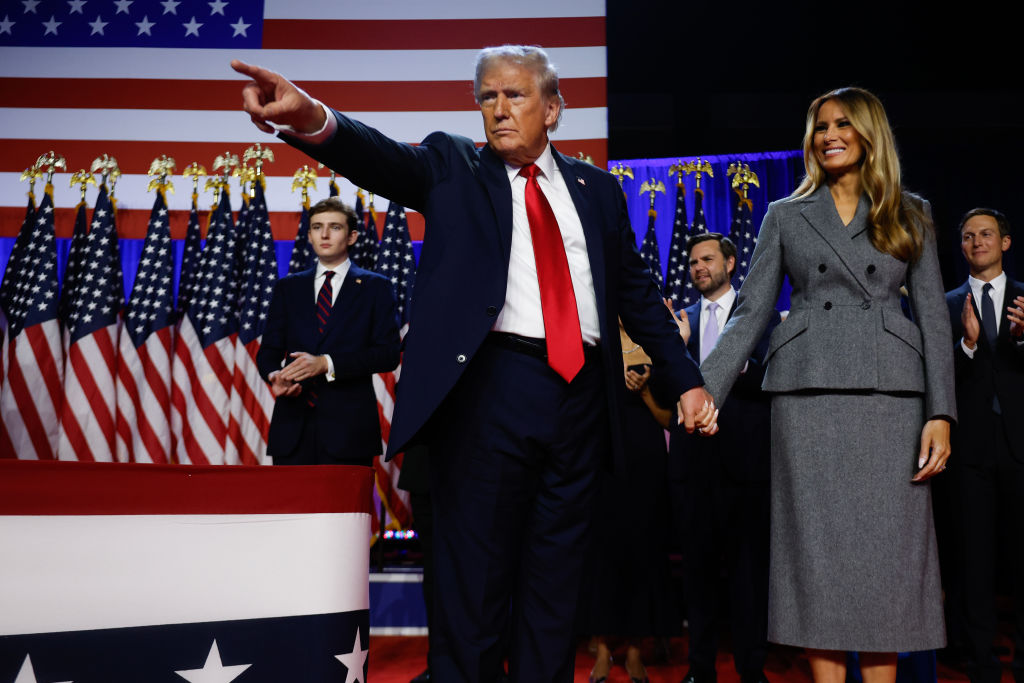
Australia’s opposition foreign affairs spokesperson says the U.N. has failed to maintain global peace and that a Trump presidency could be beneficial to his country.
Senator Simon Birmingham delivered his address to the National Press Club on Nov. 13 covering numerous issues including the U.S.
presidency, and conflict across the world. “Demonstrably, the U.N.
is failing to meet its charter ’to maintain international peace and security,'” Birmingham said in the nation’s capital Canberra. “Russia has brought bloody state-on-state, land based territorial war back to Europe with its invasion of Ukraine. “Iranian sponsored terrorists continue launching attacks from bases including Gaza, Lebanon, and Yemen—prompting massive human suffering in a war with Israel, and major threats to global trade through the Red Sea.
“North Korea and Iran enthusiastically sell arms to support Russia, while Chinese components and funds also help to sustain Russia’s war effort.” In pointing out the perceived failures of the U.N.
, Birmingham also noted the Chinese Communist Party (CCP)’s crushing of freedoms in Hong Kong, aggressive territorial claims in the South China Sea, and military intimidation of Taiwan. “In a signal that can hardly be read as well intentioned, concurrent with the escalation of conflict, these four countries (Iran, China, Russia and North Korea) have pursued joint military exercises,” he said. “Russia and China have declared a ‘no limits’ friendship.
“Elsewhere, civil wars continue to take a heavy toll on human life in places like Myanmar, the Maghreb region of North Africa, Sudan, Somalia, Yemen, Ethiopia, Syria, and the Congo.” Birmingham said the UN was “paralysed,” and peacekeeping missions no longer enjoyed international momentum. The best way going forward—to avoid a future world war—was to focus on deterrence and diplomacy, as opposed to the last century’s “appeasement.
” “Together with our allies and partners, we must become more effective at harnessing that global desire to stop warmongers like Russia, Iran, and North Korea,” he said. “The Coalition supports every effort to stand against Iranian terrorism. “We believe Australia should join the U.
S. and Canada, and act alongside the UK, in listing the Islamic Revolutionary Guard Corps (IRGC) as a terrorist organisation. “Too many Israelis, Gazans, Lebanese, Yemenis and Iranians are among those paying the price of the Iranian regime.
” Birmingham praised the historic Abraham Accords—between Israel, Bahrain, the United Arab Emirates, Oman, and later Sudan, and Morocco—that was introduced during Trump’s first term in power. “But that is not a reason to catastrophise. “The [Liberal-National] Turnbull and Morrison governments demonstrated how to work with a Trump administration.
” Birmingham said senior officials in the administration understood the significance of the relationship with Australia. “Incoming Vice President JD Vance has spoken of a pivot, and stated that Asia is ‘going to be the future of American foreign policy for the next 40 years.’ “That is a future that we must help to shape, and can do so even more effectively alongside regional partners like India and Japan.
“It is a future in which AUKUS must play a strong role.” Birmingham said there was a case for Trump to support the continuation of the AUKUS submarines because of Australia’s steadfast role as an ally. Birmingham said Australia’s resilience was pivotal in enduring “an unwarranted attempt at economic coercion”—the CCP implemented a range of trade sanctions against the country after former Prime Minister Scott Morrison called for an international inquiry into the origins of COVID-19.
“Now, with the overwhelming removal of those sanctions, Australia should celebrate the resilience shown by our economy, businesses and people,” he said. “Australia did not yield to pressure, and this strength should give us the resolve to stand by our values and national interest at all times.” Birmingham also weighed in on the importance of relationships with nations like India and Indonesia.
“Stemming the flow of drugs across our region, cooperatively tackling regional health threats, and working together to address the challenges of climate change are just some of the areas where we can do more together,” he said. “However, such ambitions for cooperation may be thwarted if the current trajectory of global conflict continues.”.














